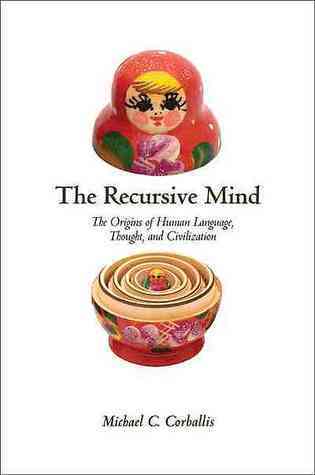What do you think?
Rate this book


291 pages, Hardcover
First published January 1, 2011
"Today's morphology is yesterday's syntax." The story that is beginning to emerge, then, is that language does not appear fully formed in different cultures as a product of universal grammar, but comes about gradually as a prodcut of culture and accumulated experience, and a practical concern to make communication more efficient. That is, it grammaticalizes itself.
[Language might therefore] depend not so much on what Steven Pinker, echoing Chomsky's notion of universal grammar, called "the language instinct" as on what has been termed an "instinct for inventiveness," coupled with a drive toward incresed efficiency."
[...] Morten Christiansen and Nick Chater, in an influential article, suggest that the sheer diversity of languages, and the rapidity with which they change, mean that language adapted to the brain, rather than the brain adapting to language. That adaptation, more over, must have depended on mental functions that were not themselves primarily linguistic, and that were heavily influenced by environmental factors such as culture and geography.
[...] Any principles underlying language can be regarded as principles of human thought, and not specific to language. Even recursion appears not to be universal, and may be absent in many indigenous languages. (p.33-34)
Language may have evolved precisely so that we can share our mental travels through time, and the absence of language in other species may stem from the absence of mental time travel itself. (p.113)
It is sometimes suggested that technology is the key to human evolution. To be sure, the marvels of modern technology seem to be the most distinctive marks of humanity on the planet. No other species has so transformed the physical environment, almost to the point of self.destruction. Recursive technology was certainly critical in the evolution of modernity, and indeed postmodernity, but it is not really a human universal. It varies hugely across different peoples on the planet - some cultures have largely retained a hunter-gatherer style of living, with relatively undeveloped technologies, but they are nevertheless fully modern with respect to language and social intelligence. This suggests that technology was a relatively late application of recursive principles, and not an obligate one. Lange, in contrast, is a human universal, and I suspect that theory of mind and mental time travel are too. I have argued in this book that the extension of recursive principles to manufacture and technology was made possible largely through changes in the way we communicate. Language evolved initially for the sharing of social and episodic information, and depended at first on mime, using bodily movements to convey meaning. Through conventionalization, communication became less mimetic and more abstract. In the course of time it retreated into the face, and eventually into the mouth, as late Homo gained voluntary control over voicing and the vocal tract, and the recursive ability to create infinite meaning through combinations of articulate sounds. This was an exercise in miniturization, releasing the rest of the body, as well as recursive principles, for manipluation of the physical environment.